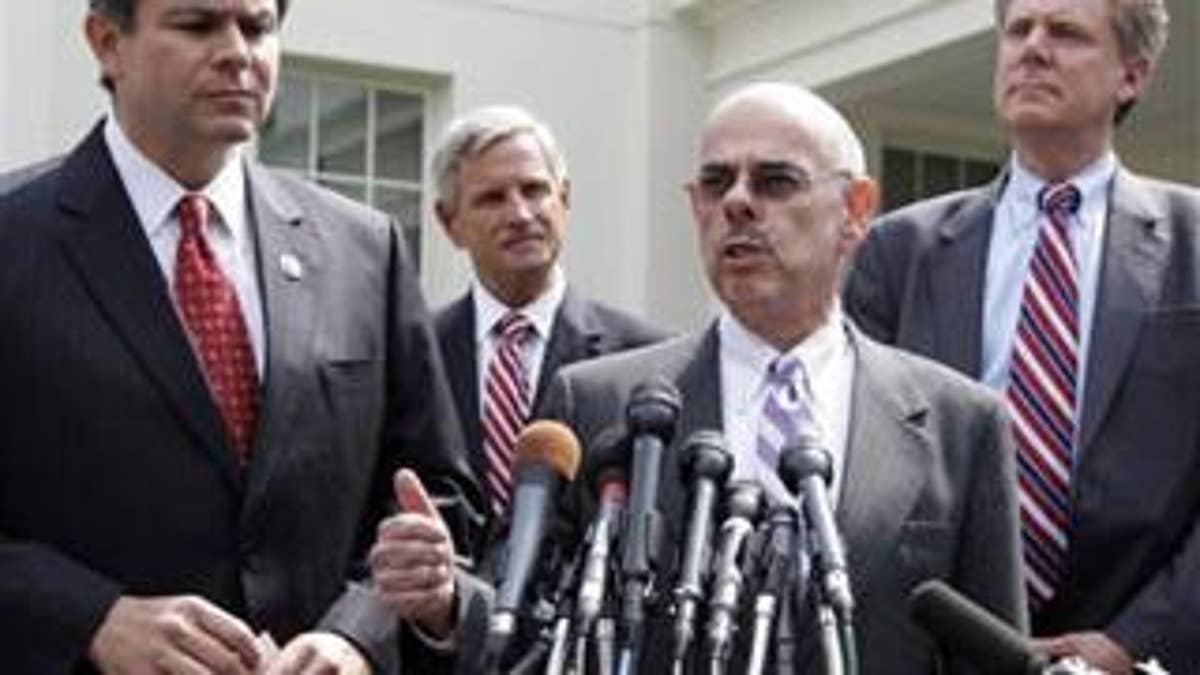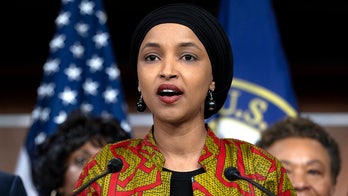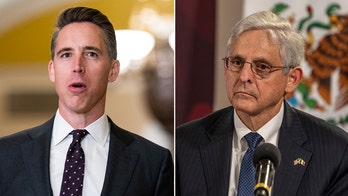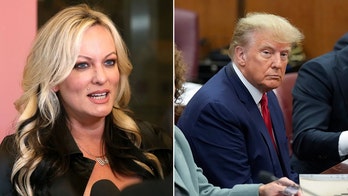
After days of intense negotiations, a group of key moderate Democrats on Wednesday announced that they had reached a health care reform deal with the White House and congressional leaders.
The compromise would cut the cost of the $1 trillion-plus package by $100 billion, according to one member of the fiscally conservative Blue Dog Coalition. The deal also would ensure that the proposed government-run insurance program would not be forced on anyone.
"We have reached an agreement that will allow health care reform to move forward," Rep. Mike Ross, D-Ark., said.
Seven of the Blue Dogs have held up passage of the bill in the House Energy and Commerce Committee over concerns about cost and the speed at which Democratic leaders were advancing the legislation. The committee is the only House panel that hasn't voted on the bill.
Ross said four of those seven agreed to the compromise Wednesday. But that gives committee Chairman Henry Waxman, D-Calif., enough votes for passage.
With the announcement, the committee is set to meet Thursday for a mark-up of the bill, in which lawmakers finalize legislation.
Ross said the deal includes an assurance that House leaders won't bring the package to the floor until September, even if the bill passes out of committee this week.
The band of conservative Democrats who signed on to the deal are Ross, Rep. Baron Hill of Indiana, Rep. Zack Space of Ohio and Rep. Bart Gordon of Tennessee. The Blue Dog Democrats on the committee who did not sign on are Rep. Charlie Melancon of Louisiana, Rep. Jim Matheson of Utah and Rep. John Barrow of Georgia.
Melancon said the compromise still doesn't go far enough for him in cutting the cost of the package.
The 52-member Blue Dog Coalition in the House said in a written statement that the entire group has not yet taken a position on the compromise measure.
But Rep. Walt Minnick of Idaho, part of the Democratic coalition, said the deal would not win widespread support.
"The majority of the Blue Dogs don't think this is the best bill we can get. We want to keep talking to our constituents," he said.
The deal didn't seem to appease Republicans either.
Republican Rep. Mike Pence of Indiana told FOX News the fact that a public option remains in the bill means government will end up vastly expanding its role in health care at the expense of private plans.
"It's supposed to be a deal, but it sounds like a pretty bad deal for American taxpayers," he said.
With enough Democratic votes, the House leadership does not need Republicans in order to win approval on the floor. However, support among Democrats is still tenuous, with liberal members starting to complain about the deal reached Wednesday.
Meanwhile, President Obama, still pushing for a final deal by fall, retooled his message Wednesday by asserting his plan would protect Americans and limit insurers' power.
"We have a system today that works well for the insurance industry, but it doesn't always work well for you," Obama told more than 2,000 people in a North Carolina high school gymnasium. "What we need, and what we will have when we pass these reforms, are health insurance consumer protections to make sure that those who have insurance are treated fairly and insurance companies are held accountable."
The Senate was reporting progress as well, though senators were apparently not close to announcing an agreement.
Sen. Max Baucus of Montana, the Democrat leading the negotiations among three Democrats and three Republicans on the Senate Finance Committee, said new estimates from the Congressional Budget Office show the plan that's taking shape would cover 95 percent of Americans by 2015, and cost about $900 billion over 10 years -- under the unofficial $1 trillion target the White House has set.
The House compromise also includes the following provisions:
-- Exempting businesses with payrolls of $500,000 or below from a requirement to provide insurance to employees or pay a penalty. The existing bill had set the level at $250,000. The penalty would hit businesses with payrolls between $500,000 and $750,000 on a sliding scale before kicking in fully at 8 percent of payroll.
--Poor people would get subsidies to help them buy care after spending 12 percent of their income on premiums, instead of 11 percent in the existing bill.
--Payment rates to doctors and other medical providers would be negotiated with the secretary of Health and Human Services, instead of tied to Medicare rates as the bill now says. The Blue Dogs contend that change will lead to fairer payment rates.
FOX News' Chad Pergram and The Associated Press contributed to this report.




